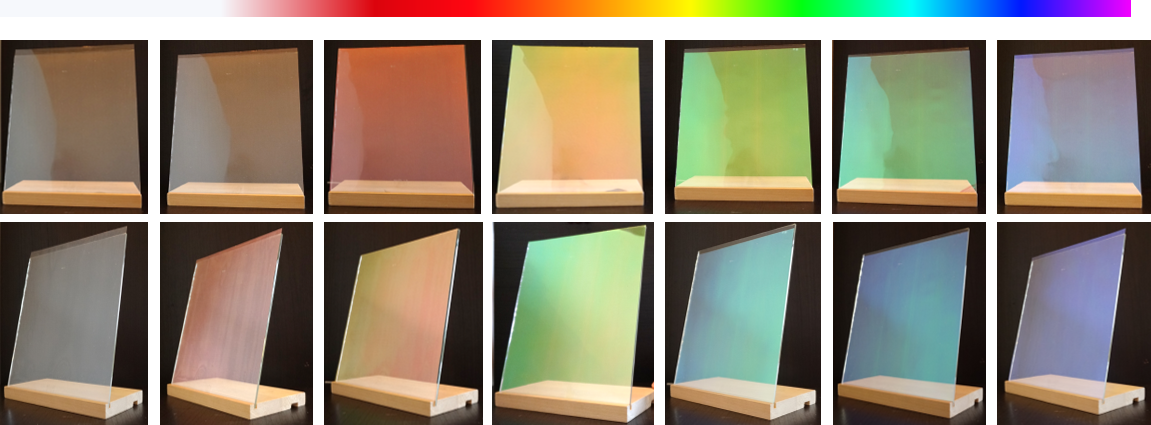ARWin
Autonomously Responsive Window Foils for Smart Buildings and Green Cities
Large glazing areas are increasingly used as key architectural features to allow natural daylight and provide a transparent building appearance. However, thermal heat gains and losses through windows increase the energy consumption of buildings in order to maintain a comfortable indoor temperature. In this proposal, we aim at the development of window foils, which autonomously regulate a comfortable visible light entrance and temperature inside a building and save energy while doing so.
The proposed foil will reject solar heat on warm days and allow it on cold days and simultaneously allow less visible light entrance at brighter days compared to darker days. In addition, the foils will be fabricated in a cost-effective way and will be easily applicable to existing window panes, which makes them affordable for a large public and enhance their potential impact on the liveability of cities. Once installed, these window foils will positively impact people’s wellbeing and contribute to an energy-neutral urban environment.
We assembled an interdisciplinary consortium, which will be able to develop the foils from various perspectives across the knowledge chain, ranging from material development, impact on building performances, end-user requirements and upscaling and integration potential. Through engagement with key stakeholders we will be able to develop a window foil, which can be fabricated on an actual window size and is accepted by end-users for real-life pilot testing, at the end of the grant period.
This is a cooperation China-The Netherlands project funded by NWO, through the Meriand Fund, and the Chinese Academy of Sciences (CAS). In this interdisciplinary project we collaborate with TU Eindhoven and the Chinese Academy of Sciences to develop the window foil materials and with the company ClimAd Technology for upscaling and commercialization.
Facts
| Funder: | NWO Chinese Academy of Sciences (CAS) |
| Programme: | Cooperation China (CAS) | Merian Fund |
| Grant amount: | € 699.556,00 Contribution to TU Delft: € 302.954 |
| Grant number: | 482.19.700 |
| Role TU Delft: | Project partner |
| Project duration: | November 2020 - January 2025 |
| TU Delft researchers: | Prof.dr.ir. Tillmann Klein |
Project partners
Eindhoven University of Technology, Chinese Academy of Sciences, ClimAd Technology


